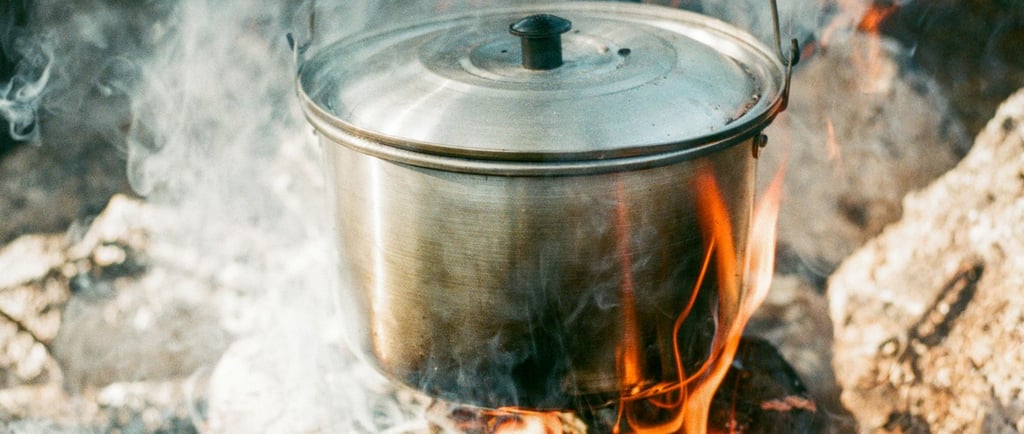Boiling Water Without Modern Tools
WATER SURVIVAL


Why Boiling Works
When it comes to making water safe, boiling is one of the most reliable methods. High heat kills bacteria, parasites, and many harmful organisms that can make you sick. But what if you do not have a stove, a kettle, or even a pot? In survival situations, you must adapt, using fire and whatever containers you can find or create. Boiling without modern tools takes creativity, but it is entirely possible.
Choosing or Creating Containers
The first challenge is finding something that can hold water over heat. Metal cans, food tins, or old pots scavenged from urban ruins are excellent. In the wilderness, you may not be so lucky. Clay can be shaped into bowls and hardened in fire to create simple pots. Large shells, thick bamboo sections, or even certain types of stone can hold water safely. The key is to think beyond normal cookware and see potential in natural or discarded materials.
Boiling with Heated Rocks
If you do not have a fire-safe container, you can still boil water using hot stones. Dig a shallow pit or use a wooden container lined with animal hide or thick bark. Heat rocks in the fire until they are glowing red, then carefully place them into the water with sticks. The rocks transfer heat, bringing the water to a boil. Replace cooled stones with hot ones until the water bubbles. Avoid river rocks that may explode when heated due to trapped moisture.
Bamboo and Plant Containers
In areas where bamboo grows, it can be one of the best natural cooking tools. Cut a thick section, leaving one joint sealed to form the bottom. Fill it with water and place it close to the fire, not directly in the flames. The bamboo itself holds the liquid while the heat brings it to a boil. Some large leaves, such as banana leaves, can also be folded into packets that hold small amounts of water long enough to heat them over hot coals.
Using Shells and Stones
Large seashells, like clam or oyster shells, can act as miniature pots. Place them on coals and let the water heat slowly. Some stones with natural depressions can also hold small amounts of water. While these methods only purify small quantities at a time, they can be lifesaving when nothing else is available.
Improvised Urban Containers
In cities or ruins, containers are easier to find. Metal food cans are excellent. Remove any plastic lining, clean them thoroughly, and they become ready-made boiling pots. Glass jars can also hold water, but they must be placed carefully near the fire, not directly in the flames, or they will shatter. Even aluminum drink cans, with the tops cut off, can boil small amounts of water when placed on coals.
Managing Fire for Boiling
A steady, controlled fire is essential. Too much flame can destroy fragile containers, while too little heat will never bring the water to a boil. Build a strong bed of coals and place your container above or near them. Use a simple tripod of sticks, flat stones, or a dug-out hearth to balance the container. In survival, fire management is just as important as the water itself.
How Long to Boil
To ensure safety, water should be brought to a rolling boil for at least one minute. At higher altitudes, where water boils at lower temperatures, extend this to three minutes. Longer boiling will not hurt, but it may waste fuel. Remember that boiling removes biological threats but not chemicals or heavy metals. In urban environments, always be cautious of industrial contamination.
Conserving Energy While Purifying
Firewood or fuel may be limited, so boiling efficiently is important. Covering your container helps water boil faster. Heating smaller amounts at a time may also save fuel compared to trying to boil a large pot. Whenever possible, combine boiling with other purification methods like filtering or settling to reduce the workload.
A Simple but Powerful Skill
Boiling water without modern tools proves that survival is more about knowledge than gear. With fire, a few rocks, and some creativity, you can turn even the dirtiest puddle into drinkable water. This skill requires practice and imagination, but it works in almost any environment. The ability to boil water when supplies run out is one of the simplest yet most powerful survival techniques you can learn.